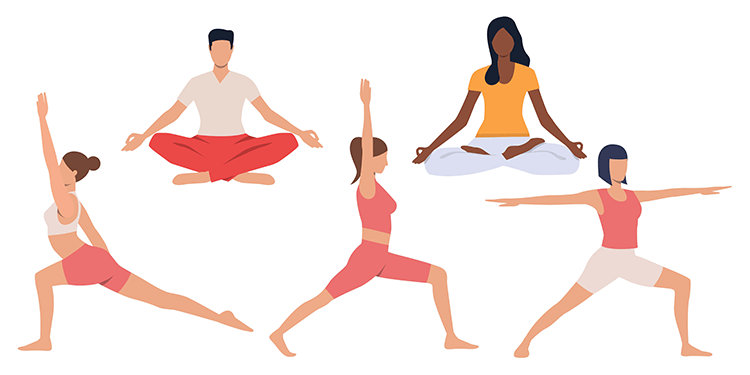Postpartum Depression: 5 Ways To Overcome It
- Maayi
- Apr 25, 2022
- 4 min read
Updated: Jul 14, 2023
Postpartum depression is a type of depression that can affect women after they have a baby. It can cause feelings of sadness, anxiety, and emptiness. Postpartum depression can make it difficult for mothers to take care of their children and themselves.
Postpartum depression can be a very difficult thing to overcome. It can make you feel like you are not good enough, or that you are a terrible mother. This is not the case! In this blog post, we will discuss five ways to overcome postpartum depression.
What is postpartum depression?
Postpartum depression (PPD) is a complex emotional phase that new mothers go through. Giving birth is a most beautiful yet most painful and life altering thing that a woman goes through. A woman goes through a lot of physical, emotional, behavioural and psychological changes during this phase.
How is Post partum depression different from baby blues?
PPD is different from the “baby blues”, which are milder and temporary. PPD can last for months or even years if left untreated. It can severely affect a mother’s ability to bond with her baby, take care of herself, and carry on with everyday life.

What causes PPD?
There is no one cause of PPD. It is thought to be caused by a combination of physical, emotional, and hormonal factors.
Physical causes:
The physical changes that occur during pregnancy and after childbirth can contribute to PPD. These changes can include:
Hormonal changes:
The drastic hormonal changes that occur during pregnancy and after childbirth can trigger PPD. These hormones include estrogen, progesterone, and thyroid hormones.
Emotional Changes:
The stress of becoming a mother, combined with the lack of sleep and increased responsibility, can lead to feelings of anxiety or depression.
Behavioural Changes:
New mothers often experience changes in their sleeping and eating habits. They may also feel more isolated from friends and family.
These changes can contribute to PPD.
What are the symptoms of PPD?
The symptoms of PPD can vary from woman to woman. They may include:
Feelings of sadness, anxiety, or emptiness
Loss of interest in activities that were once enjoyable
Withdrawing from friends and family
Difficulty bonding with your baby
Feeling like you are not a good mother
Feeling hopeless, worthless, or helpless
Having trouble sleeping or eating
Experiencing physical symptoms such as headaches or stomachaches
If you are experiencing any of these symptoms, it is important to talk to your doctor. Postpartum depression is treatable!
How to overcome post partum depression?
There is no one “right” way to overcome postpartum depression. What works for one woman may not work for another. It is important to find what works for you and to be patient with yourself.
Here are five ways that may help you overcome PPD:
Exercise:
Yoga and Exercise can help to relieve stress and improve your mood. It is important to find an exercise routine that works for you. If you are not used to exercising, start with something simple, like taking a walk around the block. Join yoga class and start with simple and basic asana practice.
Focus on pranayama and breath work.

Make time for yourself:
It can be overwhelming feeling to dedicate all your time and energy to your child, taking care of all their needs, be on toes all the time as you are yourself unaware of what they might need and want.
Taking out time for yourself and looking after yourself is very important, even if it is just for few minutes a day. Take a bath, read your favourite book, or take a walk outside. Do something that makes you happy!

Talk to someone:
Talking to someone about how you are feeling can be very helpful. It can be a family member, friend, therapist, or your doctor. It is important to find someone who you feel comfortable talking to.

Maintain a healthy diet:
Your body goes through a lot of changes after giving birth. It is imperative to take care of your diets and eating habit. Eating a healthy diet can help to improve your mood and energy levels. Make sure to eat plenty of fruits, vegetables, and whole grains. Avoid processed foods, sugary drinks, and excessive caffeine.
Include a lot of proteins and whole grain food.

Maintain a sleep cycle:
I know this sounds rather a impossible task with a new born. Having a proper sleep cycle can help you feel more rested and less stressed. It is important to get as much sleep as you can, even if it means sleeping when your baby sleeps.
If you are finding it difficult to sleep, try some relaxation techniques before bedtime. Drink chamomile tea, listen to calming music, or read a book.

When to seek professional help?
If you are finding it difficult to cope with your symptoms, or if your symptoms are impacting your ability to care for your baby, it is important to seek professional help. Postpartum depression is treatable! There are many resources available to help you on this journey.
Post partum depression is a common but serious problem that many women face after having a baby. With the right treatment and support, most women with PPD will make a full recovery. If you think you may be suffering from PPD, please talk to your doctor. There is no shame in seeking help!
Start by talking to your doctor about what you’re going through and develop a plan to treat your PPD. You can also join a support group or seek counseling.



Comments